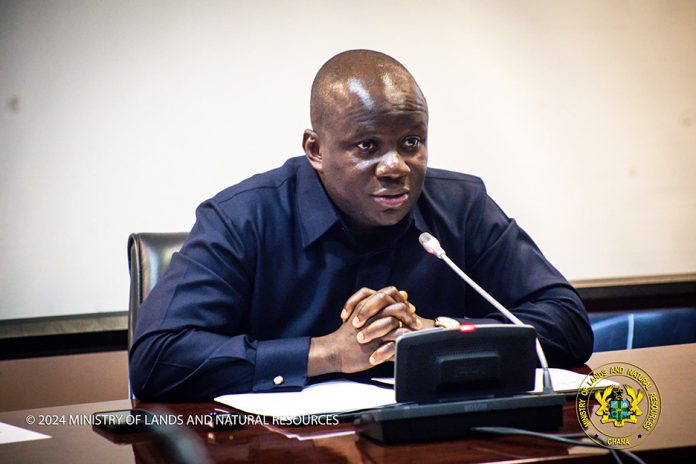The Minority Caucus on the Foreign Affairs Committee of Parliament has accused the John Mahama government of breaching Ghana’s Constitution by allegedly entering into an agreement with the United States of America to make Ghana a reception hub for deported West African nationals.
In a statement signed by Samuel A. Jinapor, Member of Parliament for Damongo Constituency and Ranking Member, Committee on Foreign Affairs on Friday, September 12, 2025 the Minority described the move as “a blatant breach of constitutional process and a direct threat to Ghana’s sovereignty and foreign policy standing.”
According to the Caucus, reports indicate that 14 deportees have already been received in Ghana, under this purported arrangement, a situation they say undermines the authority of Parliament and defies binding Supreme Court precedents.
Violation of Article 75
The Minority argues that the agreement falls within the scope of Article 75 of the 1992 Constitution, which requires all treaties, agreements and conventions executed by or under the authority of the President to be laid before and ratified by Parliament.
Citing the landmark case of Banful v Attorney General (2017-2020 SCGLR 82), they stressed that the Supreme Court has made it clear that all international agreements whether signed or not, or even concluded through diplomatic notes must undergo parliamentary approval.
“It is, therefore, surprising that this government, which suffered defeat in court over similar breaches during its 2013–2017 administration, would once again defy the Constitution and proceed to operationalize such an agreement,” the Minority stated.
Echoes of the Gitmo 2 Saga
The group drew parallels with the controversial 2016 case in which the then Mahama administration admitted two Yemeni terror suspects from Guantanamo Bay without parliamentary approval. That decision, they noted, was declared unconstitutional by the Supreme Court. The Minority insists the current government risks repeating history by ignoring due process, thereby exposing Ghana to legal and diplomatic backlash.
Beyond the constitutional concerns, the Minority warned that the agreement has dire implications for Ghana’s sovereignty and foreign policy.
They argued that while ECOWAS protocols support free movement across the subregion, these provisions apply to voluntary travel—not forced deportations orchestrated by a non-ECOWAS state.
“On the international stage, this decision risks aligning Ghana with harsh and discriminatory immigration policies of the United States, which could damage our longstanding reputation as a nation rooted in non-alignment, regional solidarity, and respect for human rights,” the statement added.
Call for Transparency and Suspension
The Minority has demanded full disclosure from government on when the agreement was reached, whether it was laid before Parliament, and what safeguards exist to protect Ghana’s national security interests.
They called for the immediate suspension of the agreement until Parliament has exercised its constitutional mandate.
“We further demand that no future agreements of this nature be implemented without prior ratification by Parliament, in strict compliance with the dictates of our Constitution,” the statement concluded. The Minority vowed to continue holding the government accountable in matters of foreign policy, sovereignty, and the welfare of Ghanaians.








